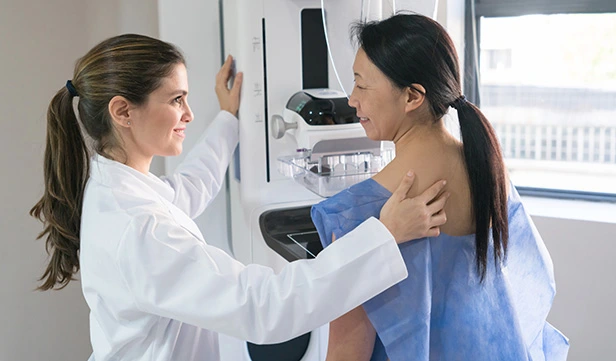Health screenings are a vital part of preventive care for women. These regular checkups help identify potential health issues before they become serious. Early detection can greatly improve outcomes, especially for chronic conditions like cancer or heart disease. This article outlines ten essential screenings that every woman should consider, based on expert guidelines and insights from top-ranking sources.
1. Pap Smear and HPV Testing
Why it’s important: Regular Pap smears and human papillomavirus (HPV) tests are crucial for preventing cervical cancer. HPV, a common sexually transmitted virus, can lead to abnormal cervical changes if untreated.
When to get it: Women aged 21 to 29 should have a Pap smear every three years. From 30 to 65, co-testing with a Pap smear and HPV test every five years is recommended.
How it helps: Early detection of abnormalities allows for treatment before cancer develops.
2. Mammogram for Breast Cancer
Why it’s important: Breast cancer is the second leading cause of cancer deaths among women. Mammograms help detect tumors at an early, more treatable stage.
When to get it: Women aged 40 to 74 should undergo screening every 1 to 2 years. If there is a family history of breast cancer, screening may start earlier.
How it helps: Early detection through mammograms significantly reduces mortality from breast cancer.
3. Bone Density Test (DEXA Scan)
Why it’s important: Osteoporosis, which leads to fragile bones, is more common among older women. A DEXA scan assesses bone density, helping to prevent fractures.
When to get it: Women aged 65 and older should undergo screening, or younger if they have risk factors like a family history of fractures.
How it helps: Identifying low bone density early helps initiate treatments to strengthen bones.
4. Cholesterol Screening
Why it’s important: High cholesterol is a major risk factor for heart disease, the leading cause of death among women.
When to get it: Women should have their cholesterol checked every 4 to 6 years starting at age 20. If there are additional risk factors, such as obesity or diabetes, more frequent testing may be needed.
How it helps: Managing cholesterol levels through diet, exercise, or medication can prevent heart disease and strokes.
5. Blood Pressure Check
Why it’s important: Hypertension (high blood pressure) is a silent killer, often showing no symptoms until complications like heart attacks or strokes occur.
When to get it: Blood pressure should be checked at least once every two years. More frequent monitoring is needed if readings are high or if there are other risk factors.
How it helps: Monitoring and controlling blood pressure reduces the risk of cardiovascular diseases.
6. Colorectal Cancer Screening
Why it’s important: Colorectal cancer is a common and potentially deadly cancer, but it is preventable through screening.
When to get it: Screening should begin at age 45 for average-risk women, with options like colonoscopy every 10 years or stool tests annually.
How it helps: Early detection of polyps and cancer improves survival rates.
7. Diabetes Screening
Why it’s important: Diabetes is on the rise, and many cases go undiagnosed. Early screening helps prevent complications like heart disease and nerve damage.
When to get it: Women aged 35 and older should undergo screening every 3 years. Those with risk factors like obesity or a family history of diabetes may need earlier and more frequent testing.
How it helps: Early management of blood sugar levels prevents severe complications.
8. Thyroid Function Test
Why it’s important: Thyroid disorders, including hypothyroidism and hyperthyroidism, are more common in women and can lead to weight gain, fatigue, or depression.
When to get it: Screening is recommended for women with symptoms or a family history of thyroid issues.
How it helps: Detecting thyroid imbalances early allows for timely treatment.
9. Sexually Transmitted Infection (STI) Screening
Why it’s important: STIs like chlamydia and gonorrhea can lead to infertility if untreated. Many infections are asymptomatic, making screening essential.
When to get it: Women aged 25 and under, or those at high risk, should be screened annually.
How it helps: Early treatment prevents long-term complications.
10. Skin Cancer Screening
Why it’s important: Skin cancer, including melanoma, can be life-threatening if not detected early.
When to get it: Women should perform monthly self-exams and have a full-body exam by a dermatologist annually, especially if they have a history of sun exposure or tanning bed use.
How it helps: Early detection of skin changes allows for timely intervention.
Conclusion
Regular health screenings are essential for women to maintain well-being and catch potential issues early. From cancer checks to cardiovascular tests, these preventive measures ensure a longer, healthier life. Be proactive by discussing your screening schedule with your healthcare provider and stay updated with recommended guidelines.
By making these screenings a routine part of your healthcare, you invest in your future health. Always follow your doctor’s advice and tailor your screenings based on personal and family medical history.
